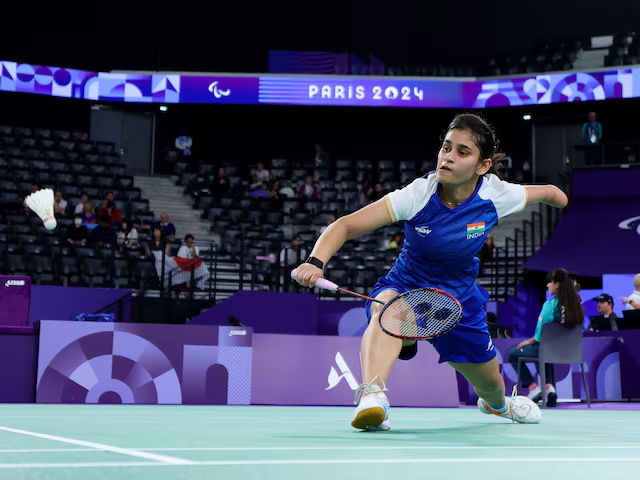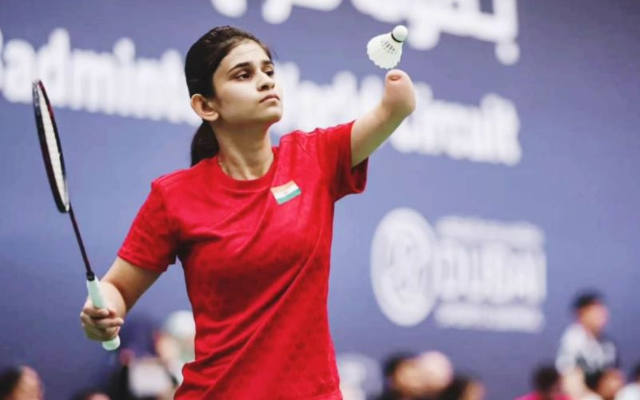
Sharmistha Gooptu in Paris
I was wondering if I should actually ask Palak Kohli this question. I have seen a lot of high achievers in different fields in India become conscious or express regret when asked about having left their school or college education incomplete in the process of becoming a professional at a very young age. And Palak had been upset and tearful just a while earlier. It was the day she lost her match and crashed out of the Paris Paralympics, but had joined us in the media section to watch the match between Suhas Yathiraj and Sukant Kadam. While the preceding matches played out, I chatted with Palak, marvelling at the grit of this young lady who had returned to her game after the diagnosis of a bone tumour and a successful surgery.
Palak struck me as a remarkably focussed girl, who knows what she wants and exactly what gives her the maximum satisfaction. ‘If I play well I feel happy, if I don’t I’m sad,’ she said in a matter-of-fact way. This is a girl who has matured beyond her years, possibly through her immense struggle of the last year and more when she fought her own body and tumour. And not a very touchy kind of person as a result. So I did pop the question – how did she feel having had to leave her education to play just before the Tokyo Paralympics? Did she face criticism for it? Did she have family support? Because ours is a society that places a lot of premium on a certain level of formal education. At least finish your 12th or your college is a persistent refrain! And here is what the very focussed Palak told me.
For the Latest Sports News: Click Here
‘Yes, when that discussion was on, my seniors and others wanted me to give the exam, saying if you drop a year, you go backwards. But I don’t think it matters! Lots of people, if they want a good college, they take a drop for a year. And I think if you take a drop and you get what you want, that’s more meaningful.’ Remarkable clarity there, and zero regrets.
Her parents were supportive, though, and that I would still say is something rare in the Indian set-up and mindset as a whole. But youngsters like Palak can be our teachers in this respect because they are so very clear about what they want out of life.
Palak explained, ‘In badminton, it’s not like you play one or two matches and qualify for the Paralympics. You have to play a series of tournaments and only the top six in all categories qualify for the Paralympics…I had started my international tournaments in 2019, and in 2020, we were having the Tokyo Paralympics which got postponed for the Covid-19. When I started my international tournaments, I didn’t have any financial supporters, and it was difficult which tournaments to go and which not to go…’

Her board examinations were scheduled near her Peru tournament, which would get her qualification points for the Tokyo Games. And when her classmates were giving their second exam, she was playing the finals in Peru. ‘I was happy because I took that bold decision to drop a year,’ said Palak with a smile. ‘I got the golden opportunity to play the finals and I was very happy and very satisfied with my bold decision. If we talk about dropping a year, then aise toh [like that] Paralympics also comes after four years!’
I wish Palak’s case is discussed by our educationists and policy makers. There is wisdom here, and let’s celebrate the youth as our teachers this Teacher’s Day.
Also Read: The Wind Beneath Athletes’ Wings – Celebrating Coaches on Teacher’s Day




